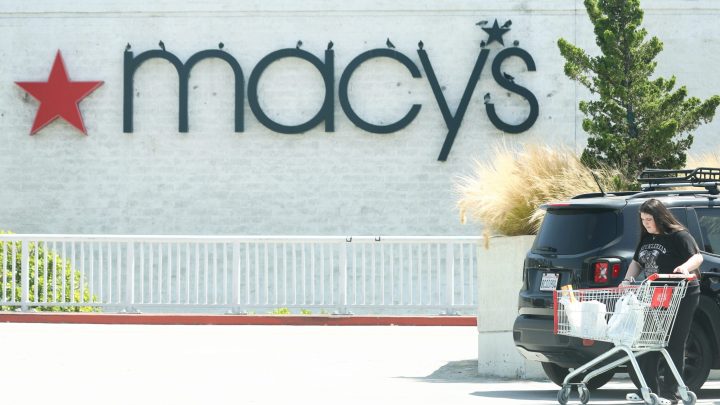
Several big retailers disappoint Wall Street as consumers shift spending
Several big retailers disappoint Wall Street as consumers shift spending

Some household names in retail have been telling us how they’re doing, and the most recent crop of quarterly financial results isn’t all that great.
At Macy’s, sales declined in the April-to-June period from a year earlier and the company expects to see a more constrained consumer. Dick’s Sporting Goods also disappointed Wall Street, and it downgraded its profit forecast for the rest of the year. Kohl’s posted profits that were down more than 50% from the same time last year.
Meanwhile, big retailers are reporting more losses to theft and more customers are late paying their credit card bills.
Is the U.S. consumer engine running out of gas? Or perhaps just changing direction?
The first big thing happening in the retail economy is that consumers are shifting from buying stuff to spending on experiences.
Not long ago, we were buying exercise bikes and lawn furniture to hunker down at home. Now we want to travel, dine out and see concerts.
“The retail companies that feasted on the boom that COVID brought to them — because of the change in lifestyle that people went through — are now exhibiting a hangover,” said Mark Cohen at Columbia Business School.
That shift is hurting retailers like Dick’s Sporting Goods and Home Depot, Cohen noted.
Meanwhile, inflation and recession warnings keep making the headlines, according to Chris Jackson at public opinion firm Ipsos.
The firm’s most recent survey found that “60% of American consumers say they feel less comfortable with their ability to make a big-ticket purchase versus six months ago,” he said.
So the bottom line for consumer spending? “You moved from necessities and goods to necessities and experiences,” said Sameer Samana at Wells Fargo Investment Institute. “The tricky part now is those necessities continue to climb in cost. Not only that, but because of what interest rates are doing, interest expenses are taking up a bigger and bigger chunk of household budgets.”
That, in turn, is driving a shift away from discretionary spending. All these countervailing forces make the post-pandemic consumer very hard to predict, Jackson added.
“People are just like, ‘We’ve suffered for the last three years. I wanna do something that feels good,’” he said. “If it involves spending $2,000 to fly to Indianapolis to see Taylor Swift, fine. But then they’re gonna buy the generic toilet paper instead of the name-brand one to, like, maybe balance it out? I don’t know.”
Most economists predict U.S. consumer spending will slow in the coming months, but exactly how that’ll play out is anybody’s guess.
There’s a lot happening in the world. Through it all, Marketplace is here for you.
You rely on Marketplace to break down the world’s events and tell you how it affects you in a fact-based, approachable way. We rely on your financial support to keep making that possible.
Your donation today powers the independent journalism that you rely on. For just $5/month, you can help sustain Marketplace so we can keep reporting on the things that matter to you.

















